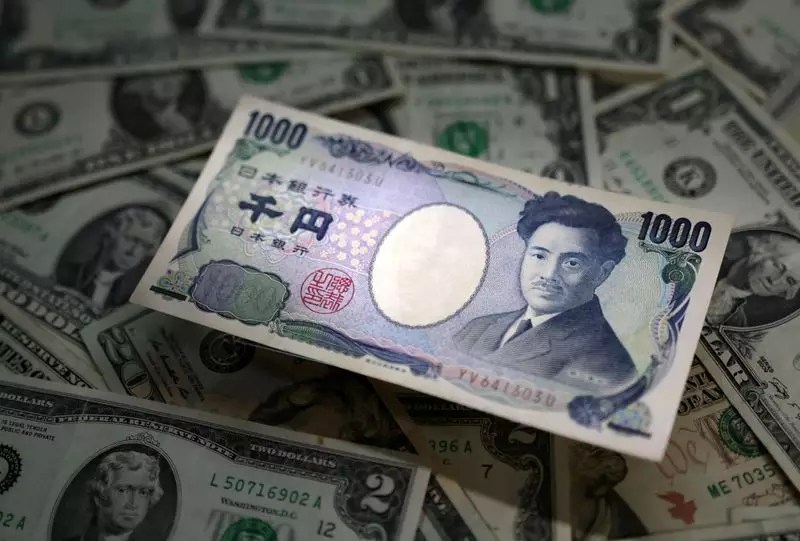In the wake of Japan’s recent parliamentary elections, the yen has found itself teetering near a three-month low, a reflection of the uncertainty that now shrouds the nation’s political and monetary future. This development follows a weekend election where the ruling coalition led by the Liberal Democratic Party (LDP) failed to secure a sufficient majority, leaving the country’s political landscape in disarray. The LDP, along with its junior coalition partner, Komeito, captured only 215 lower house seats—falling short of the 233 needed to govern effectively. This scenario sets the stage for potential coalition negotiations, raising questions about future fiscal policies and their implications for currency markets.
The yen’s value dipped sharply, reaching a low of 153.885 against the dollar on Monday—its weakest point since July. Although it saw a minor rebound to 153.12 by Tuesday, analysts like Carol Kong from the Commonwealth Bank of Australia suggest that the current environment could lead to a more expansionary fiscal policy under a new government. This would likely exacerbate the ongoing challenges faced by the yen, especially as concerns regarding U.S. economic data and the prospects of a Trump presidency loom large. Political instability in Japan might push the dollar/yen exchange rate higher as investors reassess their positions.
The U.S. dollar’s performance has been notable, heading towards its best monthly gain in two and a half years, buoyed by a resilient economic backdrop and shifting political winds ahead of the upcoming presidential election. The dollar index, which measures its strength against a basket of currencies, showed a 3.5% increase over the month—a stark contrast to the uncertainties plaguing the yen. Recent economic indicators from the U.S. have reinforced the greenback, with expectations leaning towards a potential win for Donald Trump, whose policies are perceived as inflationary and therefore supportive of dollar strength.
Amidst this background, market participants are turning their attention to key data releases, notably the core personal consumption expenditures (PCE) price index—the Federal Reserve’s preferred inflation gauge. This figure, due on Thursday, alongside the nonfarm payrolls report on Friday, is expected to shape market sentiment significantly. Analysts have underscored the importance of these reports, suggesting that they could influence the Fed’s policy direction, making them pivotal for currency trading strategies.
As the dollar gains prominence, the yen struggles not only against the greenback but also against other major currencies like the euro and the British pound. The euro climbed slightly, trading at $1.0816, while the pound moved up by 0.03% to $1.2976 on Tuesday. Meanwhile, emerging market currencies face increased vulnerability, particularly if the political climate in the U.S. shifts dramatically post-election. For instance, the Australian dollar appears especially susceptible, trading at its weakest level in over two months at $0.6572. There’s speculation that a Trump victory could trigger a broader market sell-off, further exacerbating the situation for Australian and New Zealand currencies.
Moreover, China’s yuan remained under pressure in the offshore market at 7.1447 per dollar, reinforcing concerns about regional currencies amid geopolitical tensions and economic uncertainties. The shifting currency dynamics bear witness to the interconnectedness of global markets, where political events in one nation can have cascading effects worldwide.
As these intricate correlations unfold, investors and analysts will continue to closely monitor both U.S. economic data and political developments in Japan. The upcoming days promise to be highly consequential for both the yen and the dollar, dictating the course of their exchange rates and the broader financial landscape. Amidst lingering uncertainties, market participants must remain agile, ready to adapt as new information emerges. With significant data releases on the horizon and unpredictable political climates to navigate, the interplay of currency values will be a focal point for traders and policymakers alike.


Leave a Reply